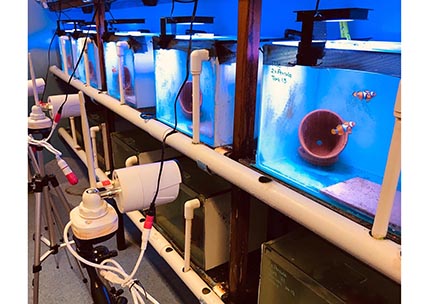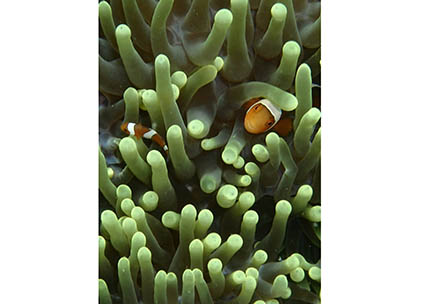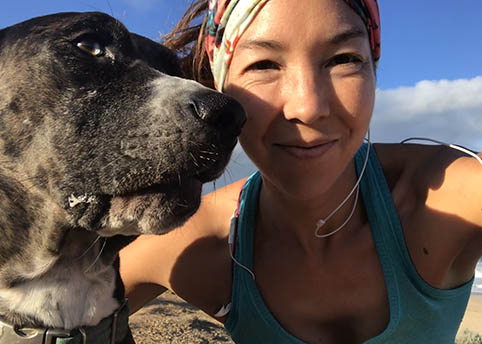Dr Emily Fobert: Humans of BioSciences
Meet Dr Emily Fobert, Marine Ecologist and Research Fellow in fisheries science in the Quantitative Aquatic Ecology and Evolution Lab at the University of Melbourne. Emily’s research is at the intersection of marine ecology and environmental change, with a specific focus on human impacts on marine systems, such as such as how artificial light at night can influence behaviour, reproduction, and physiology of fish. Earlier this year, she formed the Network for Ecological Research on Artificial Light (NERAL), which connects researchers across Australia to facilitate research and inform best policy and practices to improve lighting for wildlife. Currently Emily is working on an ARC Discovery Project that is assessing the eco-evolutionary impacts of climate change and fishing pressure on fish life-histories.
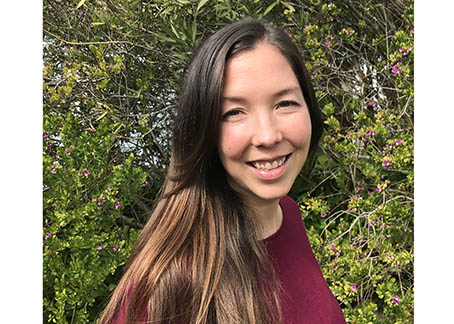 What inspired you to pursue a career in marine ecology?
What inspired you to pursue a career in marine ecology?
I grew up in a landlocked city in Canada, so I discovered my fascination for the ocean later than most marine biologists/ecologists. I was in my last year of an undergraduate journalism program and was taking science courses as electives because I wanted to be a science writer, when a friend convinced me to sign up for a tropical ecology field course with her. The course was in Cuba, and my friend was a scuba diver, so naturally I got my open water scuba certification so that I could partner with her for a diving research project studying coral recovery. I was excited for the adventure, but I had no idea at the time that the course would change my life. I fell in love with diving and the underwater world, and I enrolled in a biology degree as soon as I returned to Canada.
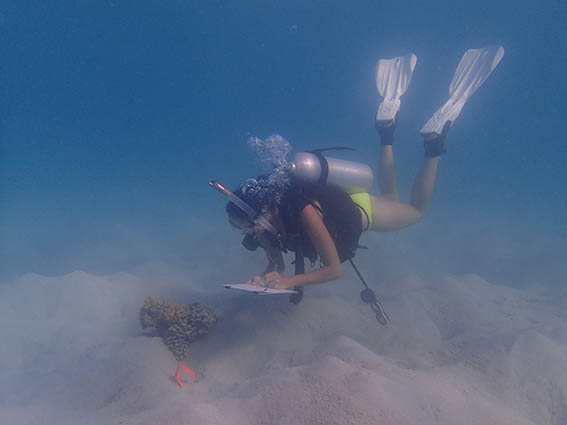
I completed my PhD in 2016, and after a year of short-term contracts and unsuccessful job applications, I received an Endeavour Postdoctoral Research Fellowship to study the impacts of light pollution on coral reefs. Working mostly with clownfish, for the last two and a half years (first at the University of Melbourne, and then 2 years at Flinders University) I have been studying how artificial light at night can influence behaviour, reproduction, and physiology of fish. Earlier this year, I formed the Network for Ecological Research on Artificial Light (NERAL), which connects amazing researchers (many from the School of BioSciences!) and practitioners across Australia to facilitate research and inform policy and practice for better lighting for wildlife.
What is your current research about?
In July, I made the move from South Australia back to Melbourne (crossed the border just a few hours before VIC re-entered lockdown!) to start my current research position. My research is part of a large ARC Discovery Project that is assessing the eco-evolutionary impacts of climate change and fishing pressure on fish life-histories. I am particularly interested in understanding the role of individual, phenotypic variation in determining a population or species vulnerability to environmental change.
To answer these questions, I am using fish ear bones (otoliths) from fish collected across the Pacific to look at how growth patterns change over spatial and temporal scales in relation to different temperatures and gradients of fishing pressure. Just like tree rings, fish otoliths form annual rings that naturally archive yearly growth rates for individuals throughout their lifetime, and we can use this information to understand how fish are interacting with their environment.
What problems are you trying to solve with your research?
Fishing and climate change are profoundly impacting marine life. Both of these human-induced stressors can reduce the genetic and phenotypic variability within a population, and this can increase a population’s vulnerability to environmental change. My research will provide insight into what determines if a species is vulnerable to climate change, and help predict the productivity of regional fisheries productivity and thus food security in a warmer future.
What do you enjoy doing outside of science?
Outside of science, I spend most of my time with my dogs (I think they’re really loving the lockdown)! I really enjoy doing anything that gets me outdoors; hiking, snorkeling, camping, and especially running. I started getting into trail running this year, and am really looking forward to training for a trail race (…when races start up again).
Find Out More
Dr Emily Fobert: Find an Expert / Twitter
Network for Ecological Research on Artificial Light (NERAL)
Quantitative Aquatic Ecology and Evolution Lab
'Humans of BioSciences' is a special new series to introduce the School of BioSciences' undergrad and postgrad students, our academics, professional staff and associates.
